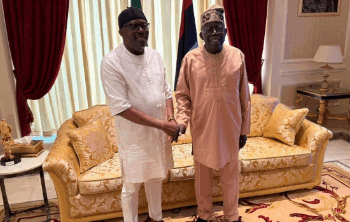The Indian Food and Drug Administration has banned two unregistered, highly-addictive opioids that were being illegally imported from India into several West African nations. A recent BBC Eye investigation revealed that Mumbai-based Aveo Pharmaceuticals had been exporting a hazardous blend of tapentadol and carisoprodol into Ghana, Nigeria, and Côte d’Ivoire—an action that has contributed to a public health crisis across parts of West Africa.
The crackdown came after India’s FDA conducted a sting operation at the implicated factory, seizing Aveo’s entire stock and halting further production. In addition, India’s Drugs Controller General, Dr. Rajeev Singh Raghuvanshi, has withdrawn all permissions to manufacture or export any combinations of tapentadol and carisoprodol. Quoting a letter from Dr. Raghuvanshi, the BBC reported that the permission has been revoked immediately, and the agency is prepared to take further action against anyone involved in activities that could harm the country’s reputation. The FDA has also been directed to conduct additional inspections to prevent any further supply of these drugs.
Tapentadol, a potent opioid, combined with carisoprodol—a muscle relaxant so addictive that it is banned in Europe—creates a dangerous mix that is not approved for use anywhere in the world. In the United States, its use is permitted only for short-term treatment (up to three weeks), with withdrawal known to cause anxiety, insomnia, and hallucinations, while an overdose can result in severe breathing difficulties, seizures, or even death.
Despite these risks, the drug combination has become a popular street drug in many West African countries due to its low cost and widespread availability. Export records indicate that Aveo Pharmaceuticals, along with its affiliate Westfin International, has shipped millions of these tablets to the region. Nigeria, with a population of 225 million, represents the largest market, where it is estimated that around four million Nigerians abuse some form of opioid, according to data from the National Bureau of Statistics.
As part of its investigation, the BBC deployed an undercover operative posing as an African businessman interested in supplying these opioids to Nigeria. The operative infiltrated one of Aveo’s factories in India and filmed one of the company’s directors, Vinod Sharma, who demonstrated the dangerous products that had been found on sale in West Africa. When the operative mentioned plans to sell to Nigerian teenagers, Sharma nonchalantly responded, “OK,” explaining that just two or three pills would allow users to “relax” and get “high.” He later admitted that the product was “very harmful” and remarked, “nowadays, this is business.”
Neither Vinod Sharma nor Aveo Pharmaceuticals responded to requests for comment following the BBC’s initial investigation. The BBC also discovered packets of these pills bearing the Aveo logo being sold on the streets of Nigeria and in Côte d’Ivoire.












